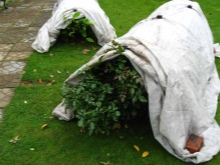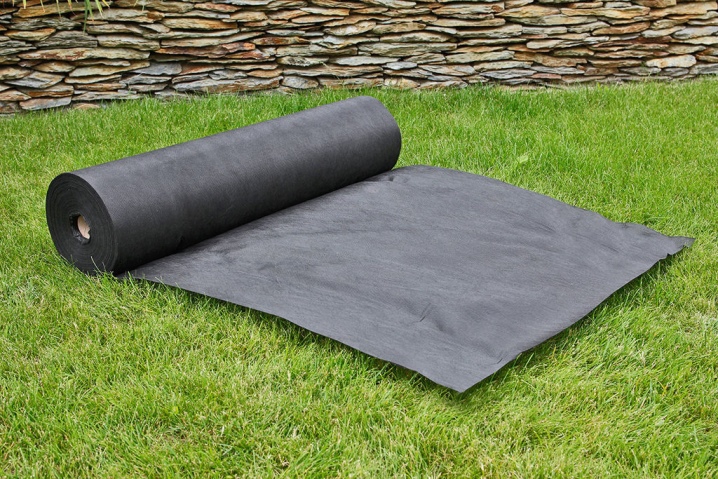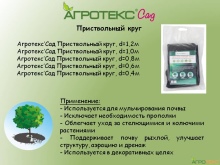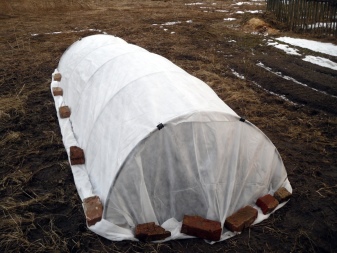All about covering materials "Agrotex"

There are many different covering materials on the agricultural market. The material of domestic production "Agrotex" has good characteristics. It helps to increase yields, is suitable for protecting plants from frost, pests and ultraviolet rays, and is an excellent option for a winter shelter for roses and other heat-loving plants. Let's take a closer look at its varieties and features of use.



What it is?
"Agrotex" is a non-woven covering material produced by the spunbond technology by the Russian trade mark "Agrotex", which is part of the "Hexa" group of companies. It is obtained from molten polypropylene by the spinning method, which allows the formation of synthetic fibers, which, sticking together, form a strong web.
"Agrotex" is intended for agricultural work - it is used both on a large agro-industrial scale to cover large areas of crops in the fields, and in gardening work, facilitating the worries of summer residents.


Externally, agrofiber resembles a dense fabric with a porous texture. It allows air and moisture to pass through, but at the same time reliably protects plants from the cold. Manufacturers include SF component (UV stabilizer), which helps to reflect UV rays and maintain the required level of temperature balance. Covering cloth is used to accelerate soil heating, create greenhouses, greenhouses and winter plant protection.
Due to the lightness and mass of excellent qualities, the material has been highly appreciated by agricultural workers and amateur gardeners.


Properties
"Agrotex" is an environmentally friendly material and is suitable for use for several years. It is very practical, suitable for growing any plants and a winter shelter for heat-loving perennials. Its main characteristics are - lightness and strength.
Also, agrofibre has the following properties:
- high level of thermal protection;
- breathability;
- moisture resistance;
- various degrees of material density;
- ease of use and maintenance;
- safety for soil and plants.

Advantages and disadvantages
This type of covering material has become a worthy alternative to plastic wrap and, with the onset of the summer cottage period, is in high consumer demand. Let's consider the pros and cons of using it.
Pros:
- protection of plants from temperature extremes;
- light transmission up to 90%;
- acceleration of fruit ripening and increased productivity;
- decrease in the level of moisture evaporation;
- resistance to condensation;
- preventing damage to plants in strong wind, rain, hail;
- protection against pests;
- dust repulsion;
- a wide range of material options for covering beds, greenhouses and greenhouses;
- saving time and effort for gardeners.



The manifestation of possible shortcomings is not associated with the properties of the material, but with the peculiarities of handling the material during work. With strong pulling, it can become thinner, with poor fastening along the edges, the likelihood of it being blown off by the wind increases.


Views
Manufacturers produce a wide variety of covering materials that differ in color, density and application. In addition to the traditional white and black options, there are also two-layer combinations. Let's consider in more detail the features of each type.
- White. Designed to accelerate soil heating and shelter plants from temperature extremes. The material with a density of 17-30 g / m² can be used to cover plant beds without the construction of additional frames. It will not let young shoots freeze, protect from overheating, insect pests. The canvas with a density of 42-60 g / m² is suitable for greenhouses, greenhouses, as well as for winter shelter of heat-loving flowering bushes (roses, hydrangeas, clematis). Some types are equipped with additional reinforcement and lamination, which significantly increase the strength of the canvas. Laminated material eliminates the passage of water and the formation of condensation inside the greenhouse.

- Black. Used for mulching. It is spread directly onto the soil. Prevents the formation of weeds and protects the fruits of plants from contact with the ground. The material is breathable and retains moisture. Density 60-80 g / m² is ideal for planting strawberries, 90-120 g / m² - for planting large-fruited crops (squash, pumpkins), shelter between rows and paths of the site.

- White black. The top layer of white color reflects ultraviolet rays, protects the leaves from overheating and burns. Bottom black - maintains the required level of heat and moisture, prevents weeds.

- Yellow-black... The outer yellow layer helps protect plants from pests without the use of chemicals, attracting them to the canvas. Also keeps fruits and leaves clean without contact with the ground. The inner black absorbs the sun's rays, inhibits the growth of weeds.

- Red-yellow. The upper red layer retains heat, accelerates plant growth and promotes early harvest, protects against frost. Inner Yellow - Provides protection against insects.

- White-red... The outer white side protects from the scorching rays of the sun. Lower red - contributes to a longer retention of heat in the soil, accumulated during the day. Accelerates fruit ripening.

- White-silver (foil). Suitable for sheltering plants in unstable climates (when the temperature drops below average climatic norms) and in northern regions. It reliably protects young seedlings from frost and promotes their rapid development. The upper white part provides good air access, while the inner silver side enhances the reflection of light on the plants, accelerating their development.

- Silver black (foil). The outer silvery side improves the light penetration of the plant, promoting the growth and maturation of crops. Internal black - maintains the balance of moisture and air, prevents the development of weeds.

How to choose?
The trade mark offers a wide range of covering materials. It is produced in rolls and in packages. The rolls are 1.6 or 3.2 m wide. The 1.6 m wide is convenient for covering small beds with early crops and low arched greenhouses.
White "Agrotex" width of 3.2 m is suitable for covering greenhouses, and black - for planting strawberry and vegetable plantations. When purchasing material in a store, it is imperative to clarify the density of the rolls and the specifics of the application declared by the manufacturer.
When buying, you need to take into account the size of the area that you plan to cover (the number of beds, their size). In order for the material to serve for more than one season, it cannot be tightly pulled, therefore, for reliable protection, it is necessary to cut the canvas off by about 15 cm in length and width more than the bed. This will allow you to securely fix the shelter with pegs or stones.


"Agrotex" in the package is convenient because it contains all the information necessary for the consumer (density, size, recommendations for use). Can be purchased immediately cuts of black cloth with ready-made holes for planting crops. To protect the roots of trees and bushes, as well as prolong the properties of the fertilizers applied, manufacturers produce special trunk circles, the diameter of which varies from 40 cm to 1.6 m.
Protective covers are very convenient. They will protect plants from winter cold and summer overheating. You can choose from different heights and diameters to suit flowers, trees and shrubs. Very convenient for covering row spacings protective stripes, which are cuts 30 cm wide and 10 m long.



How to use?
Agrotex can be used all year round. In the spring it will accelerate the heating of the soil and protect against temperature extremes, in the summer it will protect you from the scorching sun and maintain moisture, in the fall it will prolong the yield period, in the winter it will reliably protect thermophilic plants from the cold.
The sides of the canvas are somewhat different in structure - one is smooth and more shiny, the other is rough. On a greenhouse or greenhouse, the material should be laid out with the rough side, as it promotes the passage of air and moisture. To speed up the heating of the soil and cover early crops, you can cover the beds with either side.


For mulching and planting black agrofibre is spread on the ground with a smooth part, it retains heat longer. When using two-layer colored materials, remember that the black layer is always the bottom one. Usually, the darker layer is placed on the ground, and the lighter layer is on top. The only exception is the red-yellow variant, when the red layer is the top one. After harvesting, the canvas can be left on the ground, since its properties remain suitable for 3-4 years.
Protective covers - ideal protection for roses, hydrangeas, jasmine and other ornamental shrubs. They are very easy to use. You can choose them complete with arcs and clips for securing the cover. The optimal temperature balance is maintained inside and air is supplied to the culture.


It is recommended to store Agrotex in a dry and clean state after use. The material can be washed without spinning in the washing machine. Dirt stains are easy to hand wash, and the material dries quickly.


"Agrotex" is able to provide plants with reliable protection from the cold, exposure to ultraviolet rays and pests. Its application will facilitate gardening work and allow you to enjoy a rich harvest.
See the following video about the properties of Agrotex covering material.



































































Very interesting agricultural and informational material, we will try.
The comment was sent successfully.